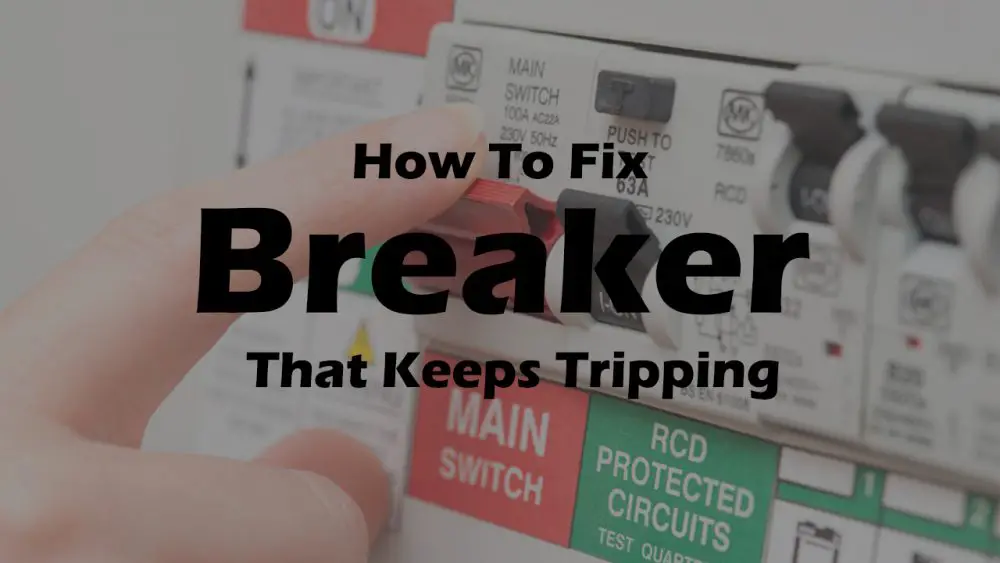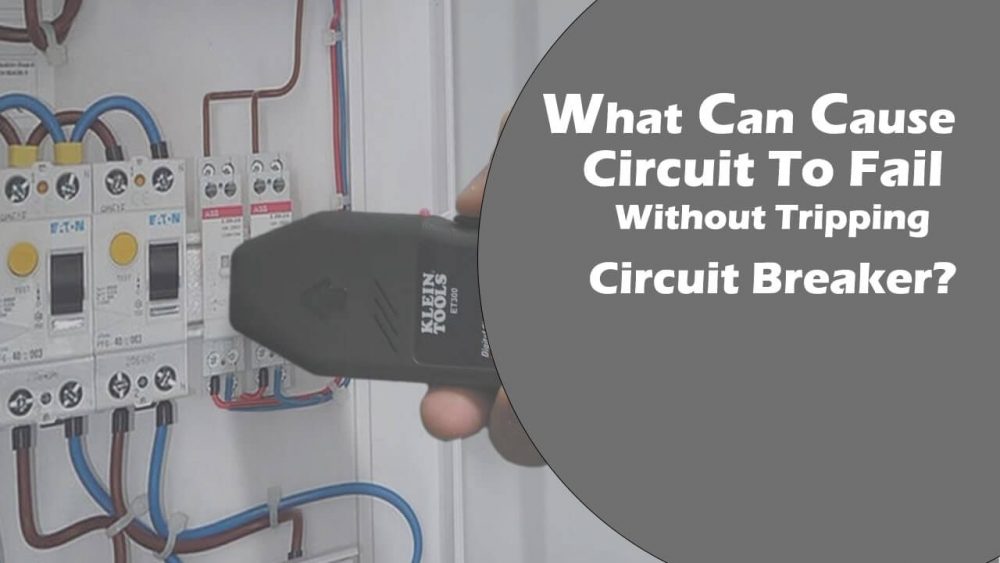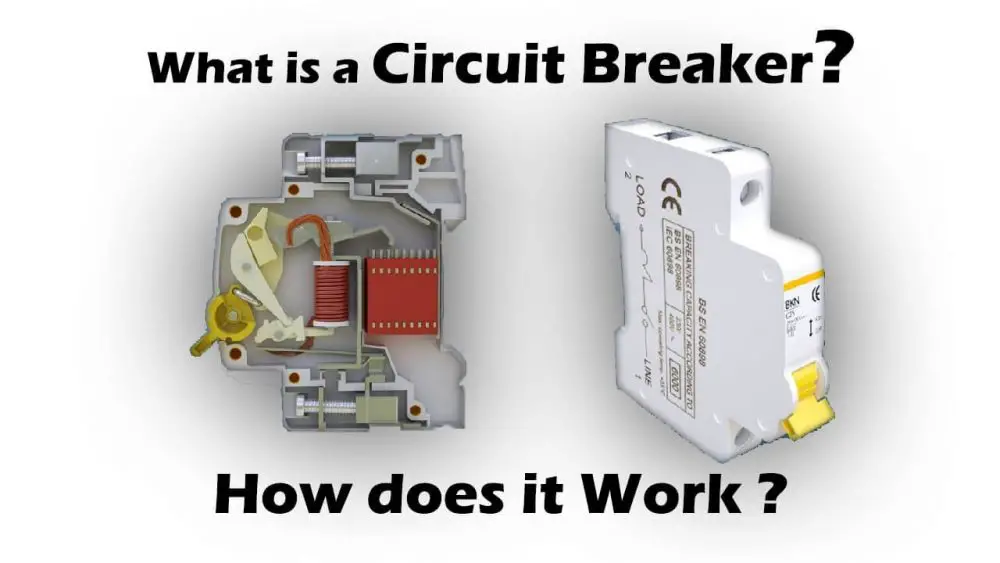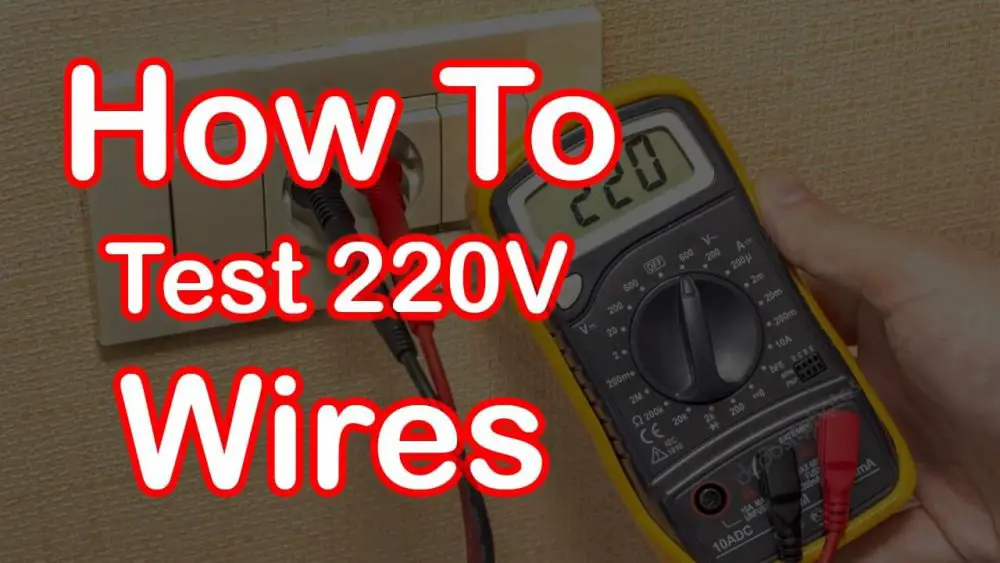How to find what is tripping my circuit breaker?
We should know first what is a circuit breaker? Circuit breakers are meant to break the wire circuit connection with the help of an On and Off switch to protect the circuit wiring and other appliances connected to that circuit breaker. A circuit breaker is usually in a panel somewhere in the backyard or basements, or indoor storerooms. The function of the circuit breakers or the fuses is the same. However, the fuses have been designed to blow up, and the circuit breakers are designed to trip when any short circuit, overload or any dangerous situation occur. The On and Off switch will let you know that your circuit breaker is working. When a circuit breaker trips, it gets switched to Off position to prevent the circuit from fire.

Table of Contents
Reasons for a Circuit Breaker Tripping
There are three main reasons for tripping circuits, overloading the current, short circuit and ground faults.
1: Overloading Circuit
The most common reason for circuit breaker tripping is an overloaded circuit. When a circuit is getting a more giant electrical load than it is intended to carry, the reason for this, when too many appliances or electrical equipment are operating at the same time, and the sensors mechanism in the circuit breaker heats up, and the mechanism of the circuit breaker trips to Off position, it has a spring, during any danger, heats mechanism pushes the spring through a tripper. This discontinues the continuous pathway of the breaker and renders the circuit inactive. The circuit remains dead with no power until the circuit breaker lever is reset to its On position, and the spring mechanism works back to its normal position.
2: Short Circuit Breaker Tripping
The more serious reason for circuit breaker tripping is Short Circuit wiring. When the hot wire or the powered wire (black) touches a neutral wire (white), or the bare Ground or the earth wire, or it touches the metal case of the panel box. A short circuit is a cause of sudden fluctuation in current or a low resistance or increase in the sudden flow of current. The reason behind this short circuit could be, pets touching or playing with the wires or mouse bites. Which alert the tripping mechanism of the circuit breaker to protect the outgoing wiring, and the connected electronics and electrical appliances. You may understand a short circuit, by turning on the lever of the circuit breaker, it trips instantly as many times as you tried.
But another bigger issue with the short circuit diagnosis is not the wiring in the circuit, Some time it is difficult to diagnose a short circuit. Because the short circuit happens in the wiring of any device or appliance. In addition to this, it also occurs in the outlet panels. And plugged in outlets for the devices. Therefore it is difficult to diagnose a short circuit. It is better to consult a professional to fix this problem.
3: Ground Fault Circuit Breaker
A Ground Fault is another type of short circuit that occurs if a current wire comes in contact with a ground wire or the metal panel box or touches the metal framing of the panel box. Ground faults can be hazardous when they occur in areas with high moisture levels, such as kitchens or bathrooms or outdoor locations. In addition, a ground fault carries a substantial risk of shock. For the sake of this hazard, it may be required that all the outlets should be protected with GFCIs (Ground Fault Circuit Interrupters). The ground fault causes a reduction in resistance and an increase in electrical flow, resulting in the actual mechanism of the circuit breaker and heat up to trip.
4: Arc Fault Circuit Breaker
This is a new technology called Arc Fault Circuit Interrupter (AFCI). These are not ordinary breakers. The trip before an overloading circuit or a short circuit. These AFCI breakers are more reliable and safe. These breakers can detect any loose wiring or any spark within the circuit. An arc fault is an important safeguard against all the fires caused by arcing.
How to check that the Circuit is Overloaded?
To check the loaded circuit, when your circuit breaker is in the off position, Try to turn off all the appliances connected to the circuit. Now turn the circuit breaker lever to its On position. Turn on the appliances one by one with a few second gaps. The appliances usually used daily, TV, computers, Iron, refrigerators etc. If the trip is because of the overload, you will observe that by turning on, all the appliances the circuit breaker will trip again to its off position. And the circuit becomes dead, and no power supply to the household appliances.
How to fix the Overload Circuit?
When you will turn on all the devices the circuit breaker will trip again and again. It means the wiring of the circuit because of heat-up becoming weak and trip the breaker again, which is quite frustrating. The solution to this problem is better to re-wire that circuit wiring with the help of an electrician unless you know how to rewire that.
How to check a Short Circuit?
To investigate the short circuit, we will do the same procedure. We will disconnect all the appliances and plugged in again, one by one. If it is a short circuit due to an outlet, disconnect the plug from that outlet and fix the outlet. Or if this is due to a plugged then change the plug. Otherwise, the major cause is short due to wiring overlapping, or breaking. If an appliance is the cause of the short circuit, we can also check it by connecting all the appliances to the circuit breaker one by one and if an appliance’s fuse is blown out then it means the appliance should be tested by an electrician, and do not use that appliance until it will repair.
How to check Ground Fault Circuit Breaker?
Ground Fault is occur because of bogus wiring. Be careful about the circuit, it is necessary to fix all the wiring with a professional for the safety of household appliances and to avoid the risk of any danger.
If you find all the equipment working well and all the outlets and plugins are perfectly working. There is no overload or no short circuit. Then it’s time to think about the ground fault. The ground fault is a serious problem, it is the moisture or any leakage of water into the panel box or electrical wiring. It is difficult to diagnose and difficult to repair. It is better to call a professional to resolve the issue.
How to check Arc Fault Circuit Breaker?
The mechanism or function of tripping of these AFCI breakers is similar to the other household panel circuit breakers. AFCI breakers are reset in the same way as an ordinary breaker by using an on and off switch. Repeated tripping is also an indication that there are bogus wiring or loose connections somewhere along the circuit, that might be causing the repeated arcing.
Frequently Asked Questions
Tripping circuit breakers are an alarm to look for the problem. Do not ignore it. There are so many causes of tripping. Bogus wiring, overload, short wiring circuit, ground faults and arc fault circuit breaking. To avoid the ground current, electrical fires or fused appliances, it is important to diagnose where is the problem.
If nothing is plugged in so the overload is not a cause. There might be some short wire, over current heat up wires, or ground fault because of moist in the wires. Look for the problem check it with the help of a professional to avoid further consequences.
Conclusion
If you have specific problems related to your circuit breaker, read this article to know the chemistry of the electrical system in your house. In that case, it’s necessary to call in a professional to deal with it. Without the knowledge and experience, if you try to fix something you do not know, it might lead to severe consequences.
It’s estimated that most electrical fires in the home every single year. These problems can be solved by qualified professionals instead of inexperienced and unqualified homeowners. To avoid any hazards or complications, do not do it by yourself.




